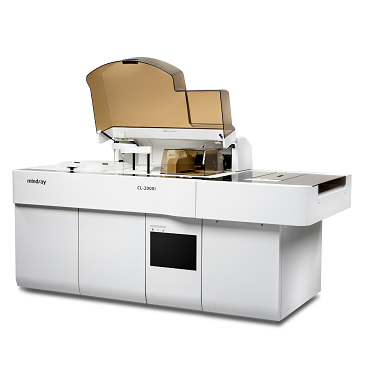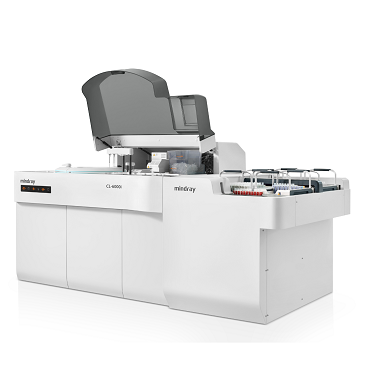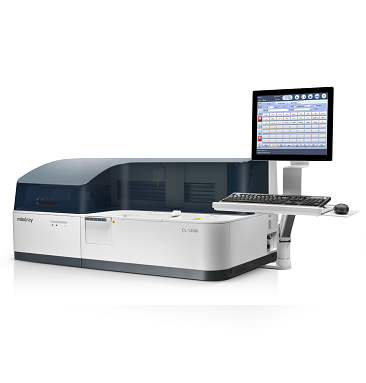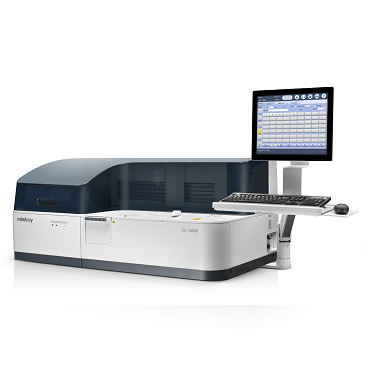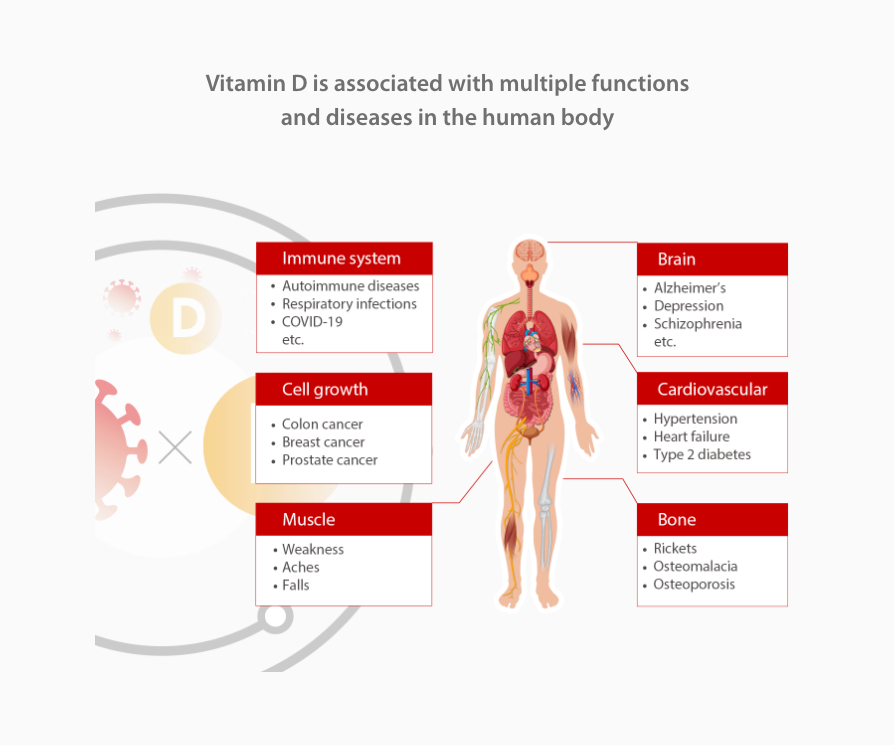
Vitamin D helps fight against viruses
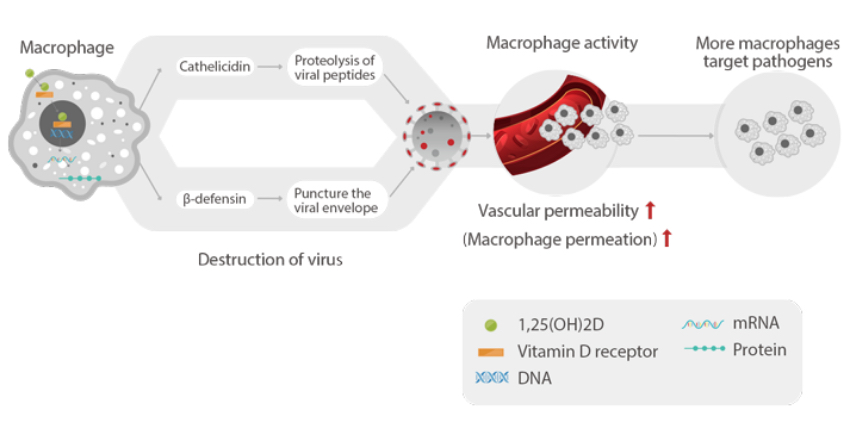
Vitamin D boosts humoral immunity and supresses cytokine storms
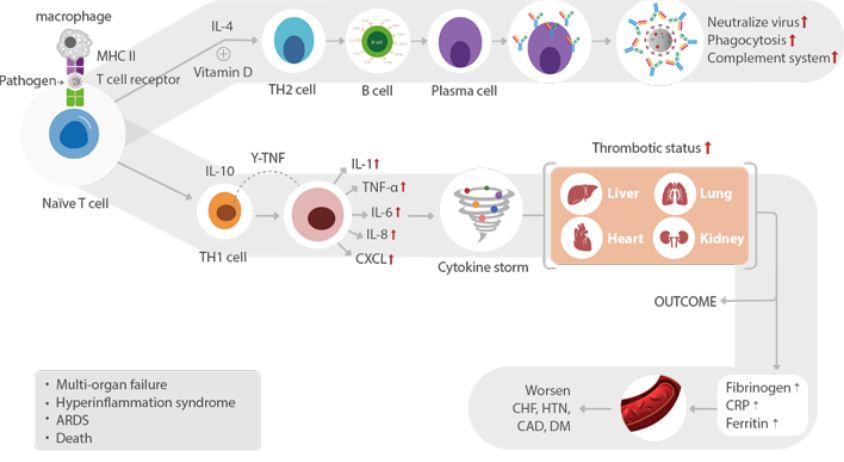
Vitamin D levels are associated with adverse outcomes in COVID-19 patients
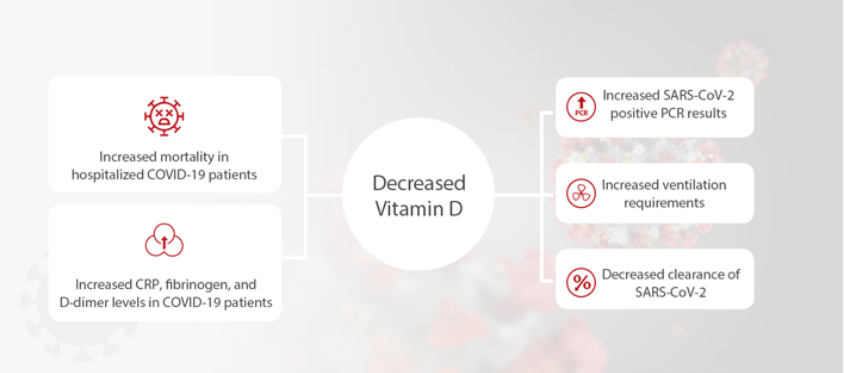
Reference
A hospital based study: To assess the importance of Vitamin D levels sufficiency in management of COVID-19.
Material and method: A prospective cohort study conducted at Mamata Academy of medical sciences, 170 patients were arranged into 3 groups based on the Vitamin D levels. Mindray CL1000i equipment and CLIA kits were used for Vitamin D levels measurement.
Vitamin D levels and Classification: <20 ng/ml —— Deficiency ; 20-30 ng/ml —— Insufficiency ; 30-100 ng/ml —— Normal
Results
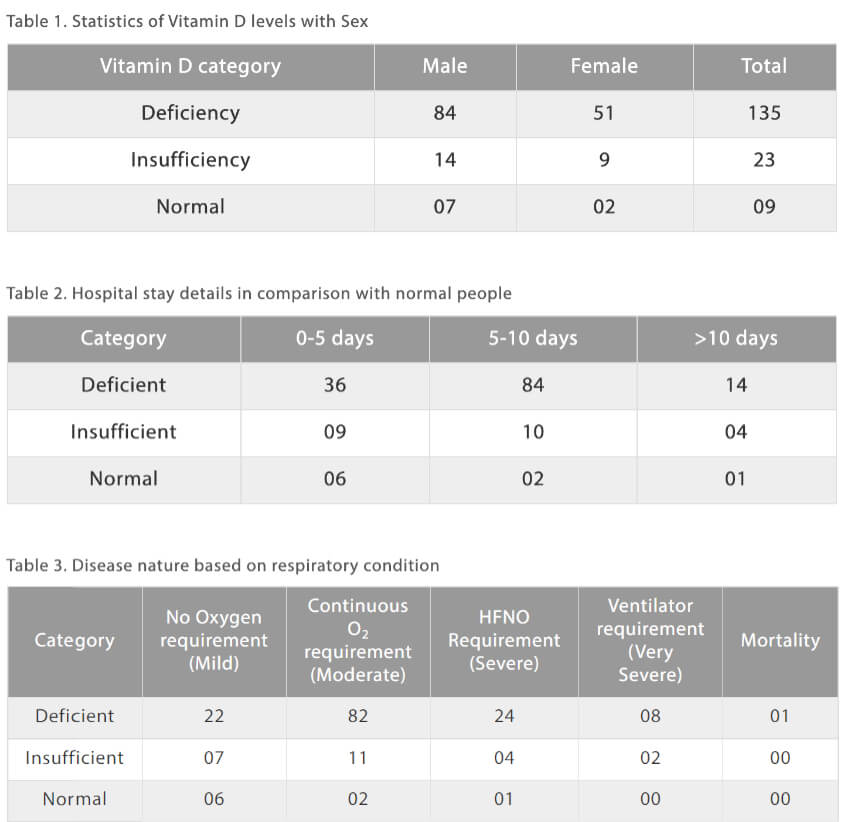
Conclusion
Persons with a vitamin D defiency are more prone to severe COVID-19 infection, and will also take longer to recover. Until there is more scientific evidence for vitamin D, we strongly endorse avoidance of vitamin D deficiency.
References:
[1] Jeon, S. M., & Shin, E. A. (2018). Exploring vitamin D metabolism and function in cancer. Experimental & molecular medicine, 50(4), 1-14.
[2] Roth, D. E., Abrams, S. A., Aloia, J., Bergeron, G., Bourassa, M. W., Brown, K. H., ... & Whiting, S. J. (2018). Global prevalence and disease burden of vitamin D deficiency: a roadmap for action in low-and middle-income countries. Annals of the New York Academy of Sciences, 1430(1), 44.
[3] Charoenngam, N., & Holick, M. F. (2020). Immunologic effects of vitamin D on human health and disease. Nutrients, 12(7), 2097.
[4] Skrobot, A., Demkow, U., & Wachowska, M. (2018). Immunomodulatory role of vitamin D: a review. Current Trends in Immunity and Respiratory Infections, 13-23.
[5] Hollis, B. W., & Wagner, C. L. (2017). New insights into the vitamin D requirements during pregnancy. Bone research, 5(1), 1-16.
[6] Hathcock, J. N., Shao, A., Vieth, R., & Heaney, R. (2007). Risk assessment for vitamin D. The American journal of clinical nutrition, 85(1), 6-18.
[7] Halfon, M., Phan, O., & Teta, D. (2015). Vitamin D: a review on its effects on muscle strength, the risk of fall, and frailty. BioMed research international, 2015.
[8] Holick, M. F. (2015). Vitamin D and brain health: the need for vitamin D supplementation and sensible sun exposure. Artaza, J. N., Mehrotra, R., & Norris, K. C. (2009). Vitamin D and the cardiovascular system. Clinical Journal of the American Society of Nephrology, 4(9), 1515-1522.
[9] Amrein, K., Scherkl, M., Hoffmann, M., Neuwersch-Sommeregger, S., Köstenberger, M., Berisha, A. T., ... & Malle, O. (2020). Vitamin D deficiency 2.0: an update on the current status worldwide. European journal of clinical nutrition, 74(11), 1498-1513.
[10] Kennel, K. A., Drake, M. T., & Hurley, D. L. (2010, August). Vitamin D deficiency in adults: when to test and how to treat. In Mayo Clinic Proceedings (Vol. 85, No. 8, pp. 752-758). Elsevier.
[11] Radujkovic, A., Hippchen, T., Tiwari-Heckler, S., Dreher, S., Boxberger, M., & Merle, U. (2020). Vitamin D deficiency and outcome of COVID-19 patients. Nutrients, 12(9), 2757.
[12] D’Avolio, A., Avataneo, V., Manca, A., Cusato, J., De Nicolò, A., Lucchini, R., ... & Cantù, M. (2020). 25-Hydroxyvitamin D concentrations are lower in patients with positive PCR for SARS-CoV-2. Nutrients, 12(5), 1359.
[13] Jain, A., Chaurasia, R., Sengar, N. S., Singh, M., Mahor, S., & Narain, S. (2020). Analysis of vitamin D level among asymptomatic and critically ill COVID-19 patients and its correlation with inflammatory markers. Scientific reports, 10(1), 1-8.
[14] Daneshkhah, A., Agrawal, V., Eshein, A., Subramanian, H., Roy, H. K., & Backman, V. (2020). Evidence for possible association of vitamin D status with cytokine storm and unregulated inflammation in COVID-19 patients. Aging Clinical and Experimental Research, 32(10), 2141-2158.
[15] Merzon, E., Tworowski, D., Gorohovski, A., Vinker, S., Golan Cohen, A., Green, I., & Frenkel‐Morgenstern, M. (2020). Low plasma 25 (OH) vitamin D level is associated with increased risk of COVID‐19 infection: an Israeli population‐based study. The FEBS journal, 287(17), 3693-3702.
[16] Martineau, A. R., Jolliffe, D. A., Hooper, R. L., Greenberg, L., Aloia, J. F., Bergman, P., ... & Camargo, C. A. (2017). Vitamin D supplementation to prevent acute respiratory tract infections: systematic review and meta-analysis of individual participant data. bmj, 356.
[17] Keshav Kumar, T Venkataramana Reddy, Reddy Jayaprakash Reddy, Ravi Ranjan Verma, & Dharmpal Sharma. (2021). Vitamin D levels in COVID-19 patients at tertiary care center and its significance-An hospital based study. International journal of scientific research, 10(1), 2277 - 8179.

